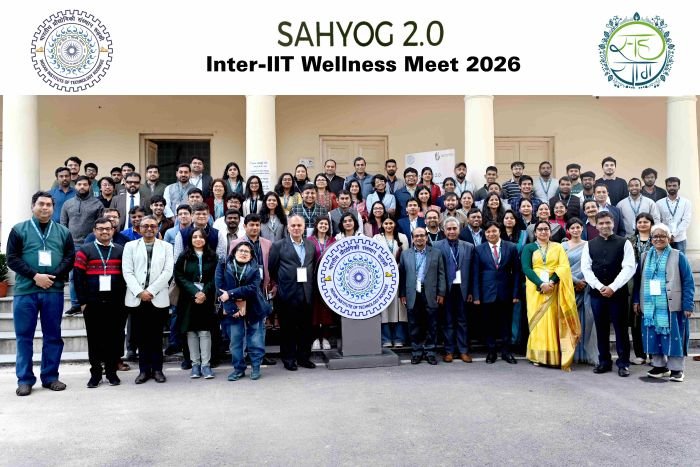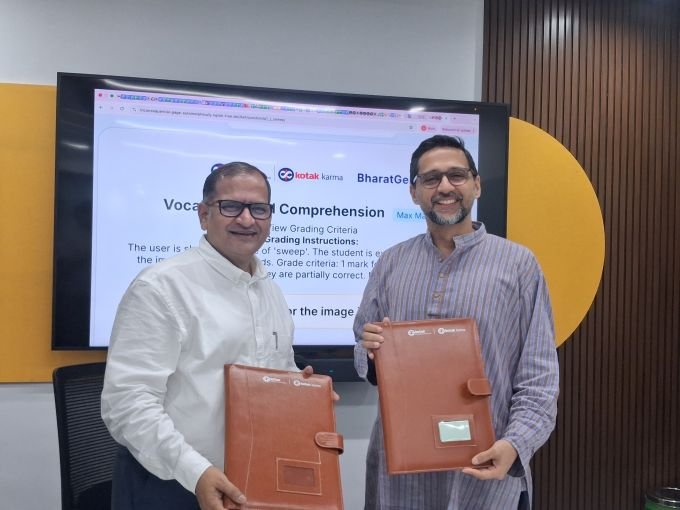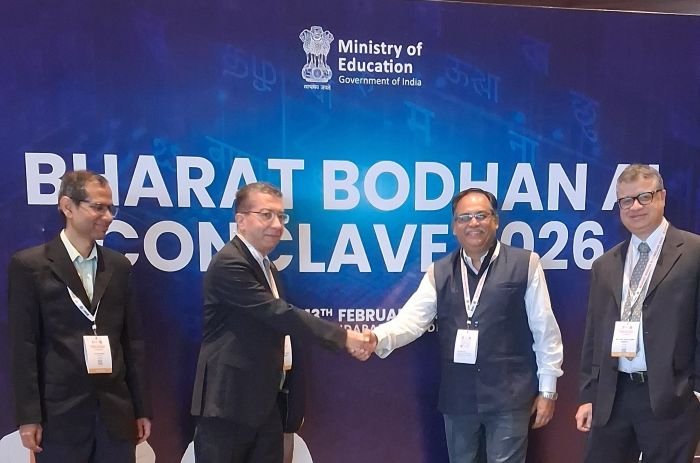
Jayant Chaudhary, Minister of State (I/C), Skill Development & Entrepreneurship and Minister of State for Education used the 16th FICCI Global Skills Summit to press the need of adequate valuation mechanism for skilled workers. In his keynote on the second day of the annual conference on August 8 in New Delhi, Skills Minister declared that India currently lacks adequate valuation mechanisms for skilled workers, drawing parallels with carbon pricing during the initial phases of climate policy. “Currently, we don’t really have a price for employability, for skilling,” the minister said, urging companies to offer higher pay scales for certified workers and recognise formal qualifications over informal labour practices.
The summit saw the launch of two pivotal reports: the FICCI–KPMG Knowledge Report on ‘Next-Gen Skills for a Global Workforce: Enabling Youth and Empowering Economy’ and the FICCI–FRSN Knowledge Report on ‘Grading Framework for ITIs in India’.
“Everyone understands our skilling gap — young people are graduating, but we cannot hire them,” the minister noted, emphasising that formal education systems struggle to keep pace with technological disruption.
The minister called for industry to “really take ownership” of skills development, urging companies to “co-create from curriculum to protocols.”
The National Education Policy 2020 provides the legislative framework for enhanced industry-academia collaboration, explicitly enabling foreign university partnerships and technology integration. Chaudhary highlighted the policy’s vision to “open up the old-world academia” to corporate engagement and research collaboration.
“The future of skills, the future of new tech and industry and disruption is already here — we just need to prepare ourselves,” Chaudhary concluded, positioning skills development as central to India’s economic sovereignty whilst navigating global trade challenges.
Dr Vikramjit Singh Sahney, MP (Rajya Sabha) and Vice Chairman of the Central Apprenticeship Council, announced ambitious expansion plans for apprenticeship programmes. Having personally adopted 10 ITIs and established a Centre of Excellence in Ludhiana equipped with advanced machinery, including robotic welders and 3D printers, Dr Sahney called for the industry to embrace the public-private partnership model.
“We have 230 million people aged 15-29 years — this demographic dividend is a treasure, but we cannot allow it to become a liability,” Sahney warned, highlighting youth unemployment’s connection to social problems. He announced plans for a regional apprenticeship programme targeting 10,000 students across Punjab and Haryana, scheduled for 15 October.
Mr Bijay Sahoo, Chair of FICCI’s Skills Committee and Group President-Strategic-HR, at Reliance Industries, emphasised the industry’s commitment to supporting government initiatives. Drawing attention to India’s technological capabilities, Sahoo noted that whilst 80 million Indians use ChatGPT, paying approximately ₹2,000 monthly, the country possesses the talent to build similar platforms domestically.
“It’s not that India doesn’t have these capabilities in terms of talent and skills — we all need to be committed to creating an ecosystem,” Sahoo said, pledging corporate support for emerging technologies including artificial intelligence, computer vision, IoT and robotics.
The FICCI-KPMG next-generation skills report provides a strategic roadmap for India’s transition from traditional automation to artificial intelligence-driven systems. The study reveals that AI is projected to grow to a USD 4.8 trillion global economy by 2033, with India facing particular disruption in IT, finance, healthcare and entry-level positions. The report outlines six strategic recommendations including tailored sector-specific AI skilling frameworks, modernised ITI curricula with AI machine interface training, and localised AI skilling hubs in Tier 2 and 3 cities. With 90 per cent of India’s workforce in unorganised sectors facing precarious conditions, the report emphasises the need for inclusive skilling strategies to transform potential disruption into opportunity.
The FICCI-FRSN grading framework report introduces a comprehensive three-stage methodology for evaluating India’s 15,000 Industrial Training Institutes, moving beyond traditional input-focused metrics to outcome-oriented assessment. The framework evaluates ITIs across three key levers: Youth Readiness and Skills, ITI-Industry Engagement, and Institutional Functioning, using triangulated data from multiple stakeholders, including learners, alumni, employers, and administrators. Unlike existing systems that primarily measure infrastructure and enrolment, this diagnostic tool focuses on learner preparedness, employment outcomes, and institutional effectiveness to create actionable insights for reform. The framework emphasises that proper “pricing” of skills requires industry to value certified workers through higher pay scales, whilst enabling targeted interventions based on performance patterns rather than uniform mandates across India’s diverse institutional landscape.
FICCI and FRSN Grading Framework for ITIs
‘The State of India’s ITIs: A Grading Framework for Readiness and Reform,’ is a first-of-its-kind blueprint prepared by FICCI and the Future Right Skills Network (FRSN)to evaluate whether India’s Industrial Training Institutes (ITIs) are truly preparing young people for the future of work. It aims to institutionalize regular health checks for ITIs and support systemic reform through evidence-based evaluation.
The blueprint complements the national agenda by offering a strategic framework to improve institutional performance, enhance data systems and align skilling outcomes with the real-world demand. This initiative comes at a critical time, as the Government of India rolls out its ambitious Rupees 60,000 crore ITI Upgrade Scheme aimed at modernizing government ITIs and establishing National Centres of Excellence. Developed through extensive consultations with industry leaders and government representatives, the framework responds to the vision articulated in the Parliament by MSDE minister Jayant Chaudhary.
Rooted in the belief that the primary role of ITIs is to prepare young people for meaningful, future-oriented employment, the framework evaluates ITIs across three core levers: Youth Readiness and Skills, ITI–Industry Engagement, and Institutional Functioning. Drawing from diverse data sources including learners, alumni, employers, administrators, and institutional records, the framework generates a 360-degree view of institutional performance and reform priorities.
While building on the Data-Driven Grading Methodology (DDGM) currently used by the Directorate General of Training (DGT), the framework goes further by offering sharper, actionable insights to bridge the gap between institutions and industry.
Ms Jyoti Vij Director General FICCI, added, “India’s ITIs are the backbone of our technical training system, yet their true potential is realised only when they are empowered, industry-connected, and outcome-focused. This framework is a step towards building that enabling environment—where data informs decisions, and decisions create impact.”
“I am truly excited about the role FRSN has played in leading this collective effort. This is more than creating a grading framework. It is about reimagining how we see the health of ITIs through the lens of industry readiness and future skills. By bringing together Quest Alliance’s on-ground experience across 1,000 ITIs and FICCI’s authentic industry voice, this collaboration bridges policy, practice, and real-world needs. Our aspiration is a system where data drives learning and continuous improvement, where progress is not only expected but also celebrated and incentivised. It is this coming together of experience and commitment that gives me hope for a future-ready skilling ecosystem,” said Aakash Sethi, CEO, Quest Alliance.
The blueprint is envisioned as a national tool for benchmarking, targeted investment, and institutional feedback loops, and will play a critical role in supporting a more responsive, data-driven planning especially in the context of the government’s ITI Upgrade Scheme.
By enabling better decision-making, and linking performance with purpose, the framework reaffirms the mission of ITIs: to equip India’s youth for life, work, and a rapidly evolving future.
To access the full report : bit.ly/StateOfITIs







